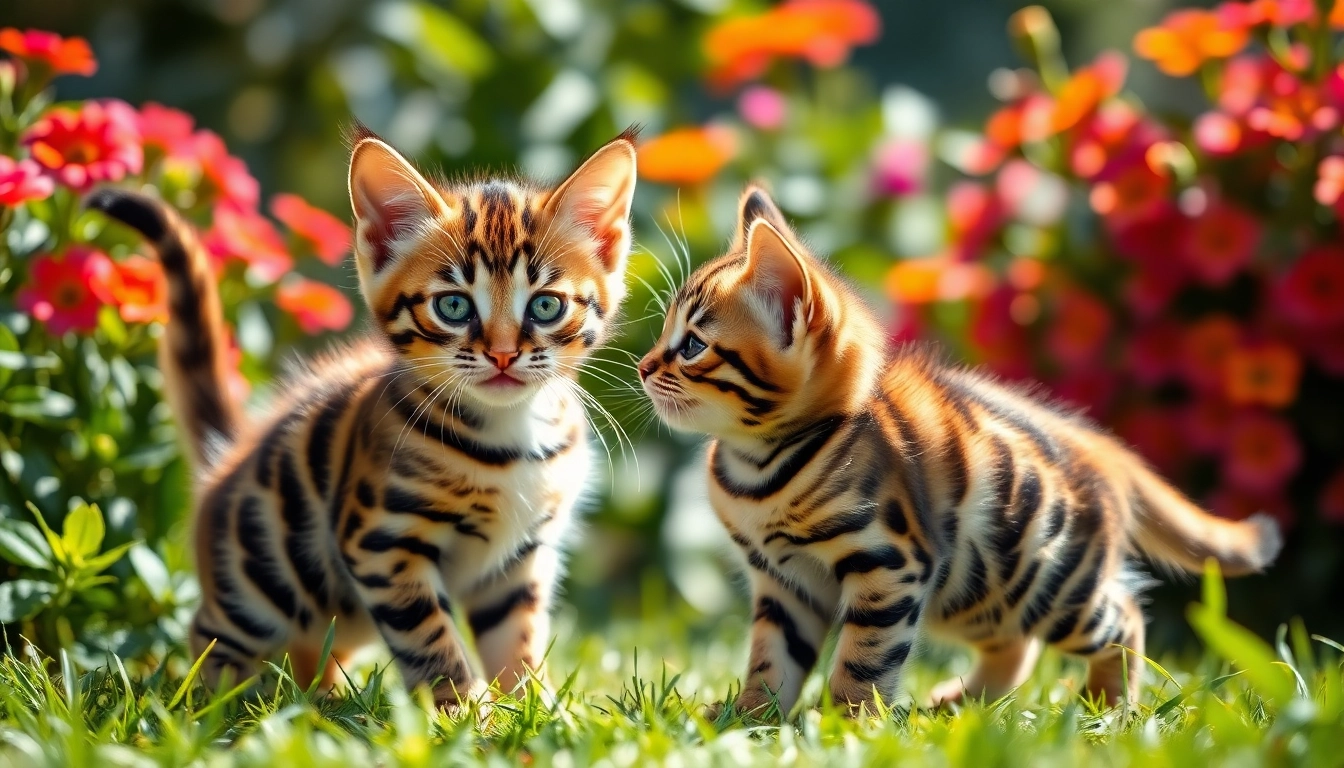
Understanding the Bengal Breed
Origins and History of Bengals
The Bengal cat is a domestic breed that was developed in the 1980s through the crossbreeding of domestic cats and the Asian leopard cat. Genesis of this exotic breed began when breeders aimed to create a cat that resembled the wild jungle cat, but with the gentle temperament suited for companionship. The breed quickly gained popularity due to its unique appearance and energetic personality, leading to recognition from various cat associations. The Bengal’s lineage links back to the wild habitats of Southeast Asia, where the species originally thrived before becoming domesticated.
Physical Characteristics of Bengal Cats
Bengal cats are notable for their stunning looks, characterized by a sleek, muscular build, which typically ranges from medium to large size. Their coat is short to medium in length and decorated with mesmerizing patterns such as rosettes and marbling, reminiscent of a leopard’s spots. Bengals come in a variety of colors including brown, snow (white), and grey. Additionally, they have large, expressive eyes that can be found in shades of green, gold, or blue, adding to their allure. These cats are also recognized for their unique whisker pads and wild appearance that set them apart from other domestic breeds.
Common Personality Traits
Bengals are known for their dynamic personalities. They are playful, active, and highly intelligent, often displaying behaviors reminiscent of their wild ancestors. Their energy level makes them require plenty of exercise and mental stimulation, which can include engaging interactive toys or climbing structures. Bengals are also quite social and enjoy the company of their human companions, often forming deep bonds with them. However, this social nature demands that they not be left alone for extended periods, as loneliness can lead to destructive behavior.
Top Bengal Breeders Orange County
Finding Reputable Breeders
When searching for Bengal breeders Orange County, it’s essential to focus on reputable breeders who prioritize the health and well-being of their cats. A responsible breeder should have a solid reputation, showcased through positive reviews, recommendations from previous buyers, and memberships in recognized cat associations. Prospective owners should arrange visits to catteries, observe the cleanliness of the environment, and ensure that cats are raised in a loving and nurturing environment.
What to Look for in a Cattery
Choosing the right cattery involves a number of important considerations. Look for TICA (The International Cat Association) certification, which guarantees that the breeder follows ethical breeding practices. It’s also important to check if the cattery conducts health screenings for genetic diseases common in Bengal cats, such as Hypertrophic Cardiomyopathy (HCM). Furthermore, the breeder should openly share health records of the kitten’s parents and be willing to answer any questions regarding their dogs and breeding methods.
Health Certifications and Testing
Health certifications are a hallmark of responsible breeding practices. Ensure that the breeder conducts health tests for hereditary conditions such as HCM, which affects the heart, as well as tests for other genetic conditions. Demand documentation demonstrating the kitten’s lineage and vaccinations. A quality breeder will offer a health guarantee and be open to discussions about the health history of their kittens. This transparency is pivotal in making an informed decision about your potential new pet.
Choosing the Right Bengal Kitten
Evaluating Kittens’ Temperament
When selecting a Bengal kitten, evaluating its temperament can give insights into its future behavior and compatibility with your lifestyle. Early socialization and interaction with human beings and other pets significantly influence a kitten’s demeanor. Spend time observing the litter; playful, curious, and friendly kittens tend to adapt well to family environments, while timider kittens may require additional patience and socialization efforts.
Understanding Bengal Care Requirements
Owning a Bengal comes with its own set of responsibilities. Due to their high energy levels, Bengals require a stimulating environment with plenty of toys and opportunities for play. They can also be prone to certain health issues, necessitating regular veterinary check-ups and vaccinations. Additionally, Bengals tend to thrive on high-quality protein diets that cater to their active lifestyles. Grooming is relatively simple, given their short fur, but owners should consider regular nail trimming and dental care as part of their routine.
Preparing Your Home for a Bengal
Creating a cat-friendly home is crucial for the well-being of a Bengal. Secure windows and balconies as they have a natural curiosity and enjoy climbing. Designate specific areas in your home for play, relaxation, and feeding that allow the cat to feel safe and comfortable. Providing vertical spaces such as cat trees or shelves can satisfy their climbing instincts. It’s also essential to stock up on stimulating toys, scratching posts, and hiding spots that cater to their playful nature and penchant for exploration.
Adoption vs. Purchase: What You Need to Know
Pros and Cons of Adopting Bengals
Adopting a Bengal can be a rewarding and fulfilling choice. Shelters often have cats in need of loving homes, including Bengal mixes. One of the major benefits of adoption is often a lower financial commitment compared to purchasing from breeders. Additionally, adopting contributes to reducing the number of homeless animals. However, potential adopters should be aware of the kitten’s background, which may include past trauma or health issues, potentially leading to special needs and additional care. Understanding these variables is pivotal in the adoption decision process.
Benefits of Buying from a Breeder
Purchasing a Bengal from a reputable breeder provides several advantages, primarily the assurance of health and pedigree documentation. Responsible breeders often prioritize breeding for genetic health and temperament, providing a kitten that is more likely to have a stable personality and fewer health issues. Additionally, the interaction with the breeder can allow for better preparation regarding the kitten’s upbringing, training, and care needs. Nonetheless, it’s essential to choose breeders with integrity who follow ethical practices.
Cost Considerations and Financial Planning
Whether adopting or purchasing from a breeder, it’s crucial to budget for the overall cost of ownership. While initial costs can vary significantly—with prices for Bengal kittens ranging from $1,000 to over $3,000 depending on pedigree and breeder prestige—ongoing expenses such as food, routine veterinary care, and other necessities must also be accounted for. It’s advisable to plan for unforeseen expenses such as emergency veterinary visits or specialized care, ensuring you can provide the best for your Bengal throughout its lifetime.
Community Resources for Bengal Owners
Networking with Other Bengal Enthusiasts
Engaging with fellow Bengal owners can significantly enhance your knowledge and appreciation for the breed. Online forums, social media groups, and local meetups can provide invaluable support and a sense of belonging. Sharing experiences, challenges, and tips with those who understand the joys and responsibilities of Bengal ownership fosters community and connection, making it easier to navigate life’s ups and downs with your pet.
Local Bengal Clubs and Organizations
Joining a local Bengal club can offer numerous benefits for owners seeking to deepen their understanding of the breed. Many clubs host events, offer educational resources, and connect enthusiasts with breeders who are committed to ethical practices. Participating in these organizations can provide insights into health issues, breeding patterns, and the overall community culture surrounding Bengal cats.
Health and Care Resources
Taking charge of your Bengal’s health care is paramount. Numerous resources are available online and through local veterinary offices to guide owners in ensuring optimal health. It’s essential to keep abreast of general health advice, nutritional recommendations, and care strategies specific to Bengals, which may differ from other breeds. Moreover, connecting with a veterinarian who understands the nuances of the Bengal breed can help ensure that your cat receives tailored care throughout its life.






